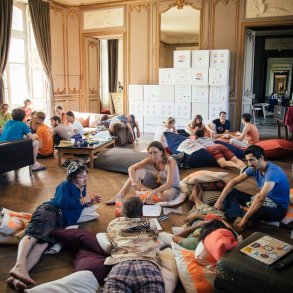By Adriana Cárdenas (Colombia), originally published in Blog Idealistas
Being profitable and betting on a better world is possible
This is the bet of Companies registered in B certification system, a movement of companies and people convinced that a successful economy can only be achieved when companies include in their model a good social, environmental, and financial performance.
There are more than 1,600 B corporations in the world already; 205 of them are in South America, according to the official website of B system. That number for many people might not mean much, but it represents a significant beginning in the way companies operate, compared to a few years ago, when it would have been highly questionable to think it possible to combine profitability with sustainable practices.
The B Corporation competes for being the best for the world and not only of the world.
If you think the sentence above makes sense, and you have a business or social company, you might like to consider the B certification, which in addition to being delivered by B Lab, a non-profit organization in the United States, rates your company as a reliable, fair, and transparent organization.
A triple win-win: you win as a company by attracting more and better customers, the world wins thanks to your sustainable practices, and your work team wins.
What is the difference between Social Entrepreneurship, B Corporation, and CSR?
Social enterprises like B Corps generate both a positive social impact and a positive environmental impact.
However, B Corps do not necessarily work on solving a social problem. That is to say, although the model works to avoid the generation of social and environmental negative impact, a business can be dedicated to commercial activities that have nothing to do with innovation/social entrepreneurship itself.
Among them we find the Patagonia company, a B Corp that is dedicated to make and market tools and clothes for mountain climbers.
It should be noted that a social entrepreneurship can be certified as B Corp. In addition to carrying the social value in its DNA, that is its main objective, its activities can be on the same line. However, if a social entrepreneurship is not certified as a B Corp, that does not necessarily imply its activities are harmful to the environment or social quality.

 Adriana Cárdenas is a Colombian living in New York, working as a volunteer and intern in the third sector, helping people who do not have access to the health system, translating from English to Spanish and vice versa free health events and managing outreach activities.
Adriana Cárdenas is a Colombian living in New York, working as a volunteer and intern in the third sector, helping people who do not have access to the health system, translating from English to Spanish and vice versa free health events and managing outreach activities.


